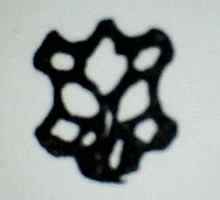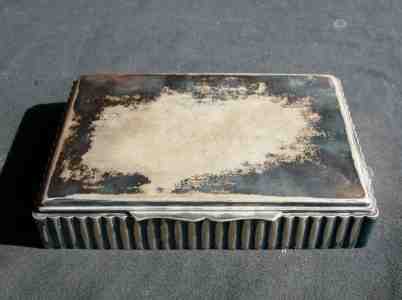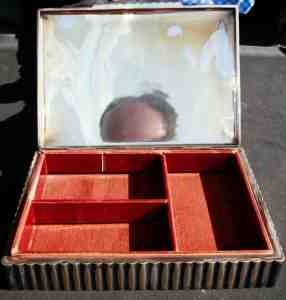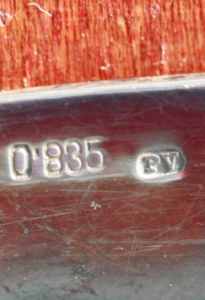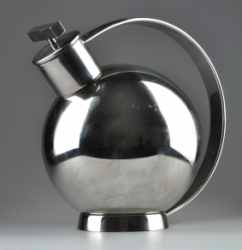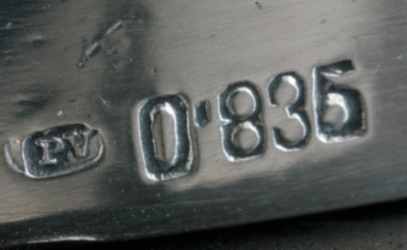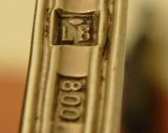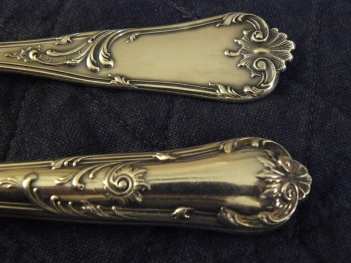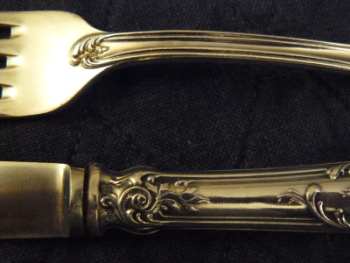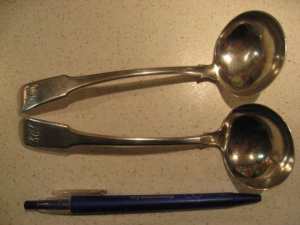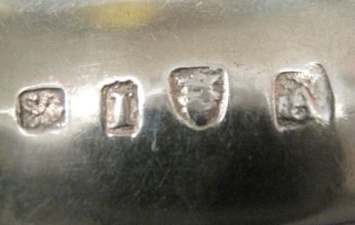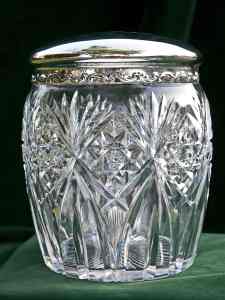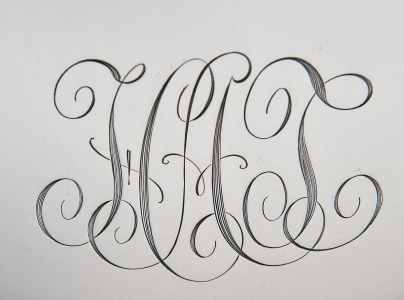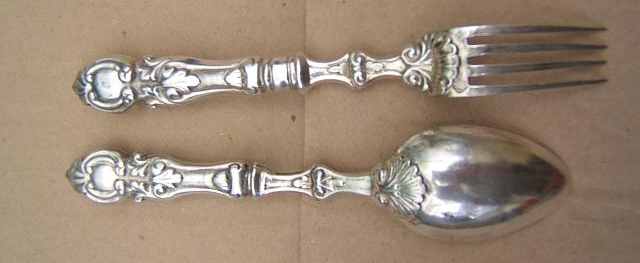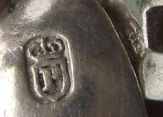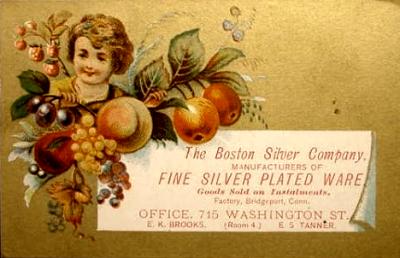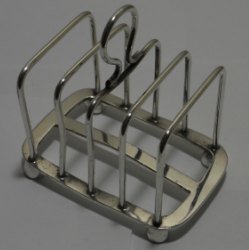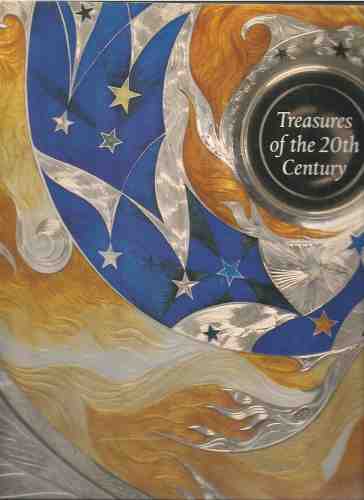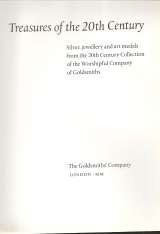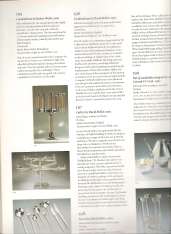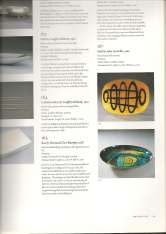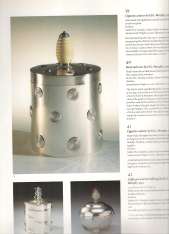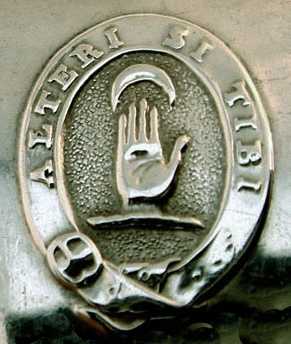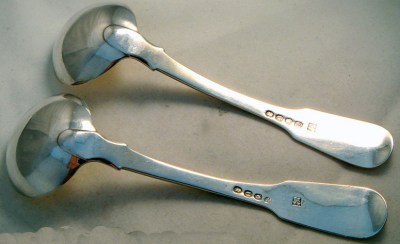 newsletter # 96 May 2012
newsletter # 96 May 2012www.ASCASonline.org SITE MAP
email: silverassociation@yahoo.it
YOUR GUIDE TO MAY NEWSLETTER:
articles
new
members
members' window
|
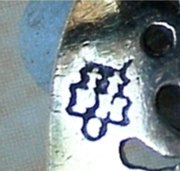
David McKinley presents:
|
New members
Welcome to new ASCAS members:
Erika Basso - Belgium & Italy
Elizabet A. Clough - USA
Craig Dorman - USA
James S. Harris - USA
Carol J Krieks - USA
Kirk Williams - USA
|
top page -
page map |
Members' Window # 96
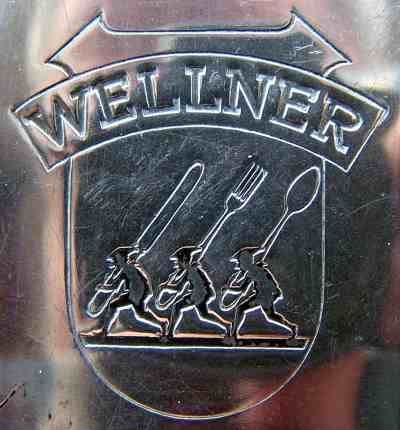
Dr. David Nikogosyan presents:
|
Mail to ASCAS: e-mail silverassociation@yahoo.it
David Mckinley writes:
...Dear Giorgio,
I have recently re-opened my research file on The Gatcombe Cup
which is an important piece of 16th century English plate around
which is considerable mystery.
It is an exceptionally well made piece but it is the only piece
so far discovered with its particular maker's mark on it.
Because of its quality one would expect to find this maker's
mark on much other silver of the period but to date none has
come to light in this country. The reason may be that it could
be of German origin (possibly Nuremberg). Jackson-(Pickford
edition, p91) describes it as "a spray of leaves'. Picture
attached.
I would be most grateful if you will publish this picture and
ask if any member can identify it.
With all good wishes,
David Mckinley
Emil Fonfoneata writes:
... Could somebody help me with identifying the stamp on a
cigarette box and a cocktail shaker (design Sylvia Stave)?
The maker, period and country (PV 0,835).
Emil Fonfoneata
Marc Deconinck writes:
... I have some cutlery pieces and I'd wish to add some more
pieces to the set.
Could you please supply information about the maker's name (the
mark is LB)?
However it is marked 800, I was told that it's only plated?
Best regards
Marc Deconinck
I believe that your pieces are 800/1000 silver fineness.
I trust on the help of ASCAS members for the identification of
the maker.
Giorgio Busetto
Alan Yates writes:
... I research information about the origin of these small sauce
ladles.
Possibly they are Chinese pseudo hallmarks?
Any suggestion will be greatly appreciated
Alan Yates
Martin Folb writes:
... I have an American cut glass biscuit jar with a silver lid
bearing the mark shown in the Photo.
Any idea on the maker?
Any idea on the initials on the lid? I think they say FCT
Martin Folb
The maker is Whiting Manufacturing Co (see my website at
http://www.silvercollection.it/AMERICANSILVERMARKSWXYZDUE.html).
In my opinion the initials of the owner(s) are FCAT, but I have
no idea about their meaning.
Giorgio Busetto
Replies to questions
Robin Holmes receives
this answer about his christening set
(see April 2012 Newsletter)
Alan Yates writes:
... Richard Holmes, writing from South Africa, my home too,
asked for information on an elaborately decorated fork and spoon.
It looked Continental to me, and looked a good weight too. I
referred to my 1985 edition of Tardy's International Hallmarks
on Silver and it would seem that the hallmark is Oporto,
Portugal, 1870/1877.
I forgot to add that the guaranteed minimum purity of the silver
made prior to 1886 is 750 parts per 1000.
Alan Yates
Oskar M. Zurell writes:
... Here in short my answer: "crowned P in a shield" = Porto, in Portugal:
1877-1881 in use by the assayer Guilherme Guedes Mancilha. (Vol. I (XV c - 1887), page 14, number 133)
The fineness in this case would be the minimum fineness of '10 dinheiro' = 833-1,000.
"IC" mark in a horizontal rectangle was registered in Porto in 1865, by the assayer Vicente Manuel de Moura.
for the maker of the fork and spoon: Josť Jo„o Cardoso, from Porto (Vol. I -XV c - 1887-, page 108, number 1046).
This "IC" maker's mark was found on articles assayed in Porto in the period from 1877 to 1881.
(Vol. I -XV c - 1887-, page 332, notice on number 1046).
Source: "Marcas de Contrastes e Ourives Portugueses" ISBN 972-27-0773-6. Vol. I (XV c - 1887). 4th edition (Reprint of 3rd
edition) 1997, Lisbon.
Kind regards,
Oskar M. Zurell
"A PAGE per MONTH"
In this column we present a page obtained from makers'
brochures, books, auction catalogs, advertising or whatever
other printed paper, related to silver, that may be of interest
for ASCAS members.
The images will be published at a "low resolution" level and for
private and personal use only
"A WORD per MONTH"
In this column we
present an abstract from a page of the "What is? Silver
Dictionary"
courtesy of


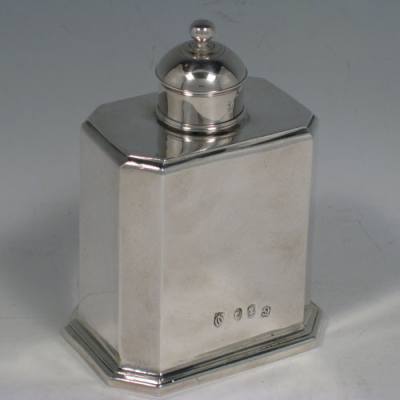
|
TEA CADDY
|
"A SILVERSMITH per MONTH"
In this column
we present marks, information and history of silversmiths and
silver manufacturers.
This column is published under the kind permission of Giorgio
Busetto's website


HUKIN & HEATH - HUKIN & HEATH LTDThe firm, active as manufacturing silversmiths and electroplaters, was established in Birmingham in 1855. In 1875 the firm entered its mark in Birmingham Assay Office, while in 1879 the founders Jonathan Wilson Hukin and John Thomas Heath entered their mark in London Assay Office....... more |
"A BOOK ON MY SHELF"
In this column we present books, new
or ancient, dealing with silver in all its aspects (history,
marks, oddities...). This isn't a "book review" but only a fair
presentation of some useful "tools" that anyone may have in the
shelf of his bookcase.
ASCAS members are invited to contribute to this column
(click to enlarge images)
In the "book on my shelf" of this month ASCAS presents:
"A CREST per MONTH"
In this column we present images and descriptions of Crests and Mottoes of British, Irish and Scottish families as engraved on silver items.

Custom Search
Closing our May 2012 edition of ASCAS Newsletter I hope you have appreciated its content.
Your comments, suggestions and advice will be of great help.
My thanks to Marc Deconinck, Martin Folb, Emil Fonfoneata, David McKinley, Dr. David Nikogosyan, Alan Yates for their invaluable contributions.
Giorgio Busetto
Secretary
ASCAS is a community of people having a common
interest in antique silver.
|

